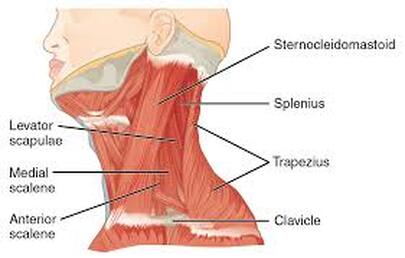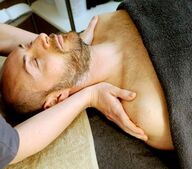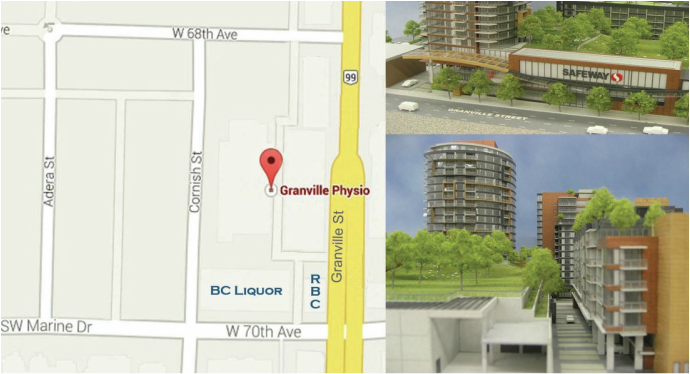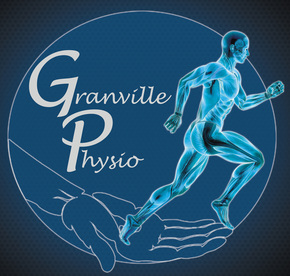acute neck strain (Jenna) A neck strain refers to the tearing of a neck muscle or tendon when it is stretched too far (is also referred to as "pulling a muscle"). This is different from a neck sprain, which involves injury to a ligament of the neck. The severity of the neck strain depends on the size of the tear and its location in the tendon or muscle. Mild neck strains often heals on its within a few weeks, however it presents alongside symptoms that may interfere with daily function (for example, mild to sharp pain). Additionally, more severe neck strains bring about more inflammation, which is associated with more swelling, more pain, and a longer time to full recovery.
|
Two neck muscles that are commonly sprained include levator scapulae and the trapezius (see photo on the right). The severity of neck strains can be classified as follows:
|
symptoms
|
causes
|
treatment
|
how does physiotherapy help?
|




